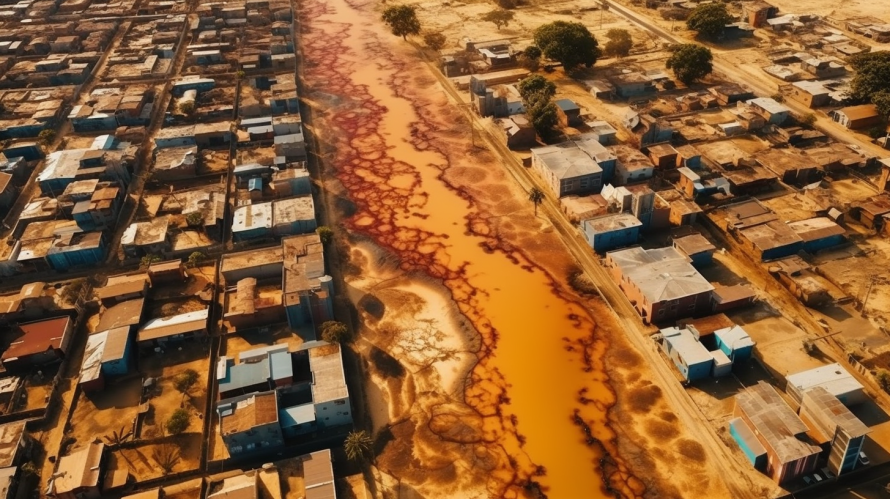
South Africa is a country that is susceptible to drought due to its semi-arid climate, which makes it vulnerable to the effects of climate variability and change. Drought has significant impacts on the country’s social, economic, and environmental systems. This research task aims to equip Grade 11 learners with skills in research, analysis, interpretation, and communication. This paper will explore the possible subtopics and questions that learners can explore, the importance of the research memorandum, and how learners can prepare for their exams.
Causes of Drought
Drought is a natural disaster that occurs when there is a shortage of rainfall over an extended period. The first subtopic that learners can explore is the causes of drought. This section aims to provide an understanding of what drought is and the different types of drought. The research task should explain the physical and human causes of drought. Physical causes may include climate variability, while human causes may include deforestation, over-extraction of groundwater, and poor water management practices. Climate change is also a crucial factor that impacts drought, and learners can investigate how climate change exacerbates drought conditions.
To explore the causes of drought, learners can ask the following questions:
- What is drought, and what are the different types of drought?
- How does climate variability contribute to drought?
- What are the human causes of drought, and how do they contribute to the occurrence of drought?
- How does climate change impact drought conditions?
Impacts of Drought
Drought has significant impacts on society, the economy, and the environment. The second subtopic that learners can explore is the impacts of drought. This section should provide an understanding of the social, economic, and environmental impacts of drought. Learners can investigate how different regions and communities experience drought differently, as well as the short-term and long-term effects of drought. The research task should describe the loss of vegetation, soil erosion, and the depletion of water resources. Learners can also investigate how drought affects wildlife and biodiversity.
To explore the impacts of drought, learners can ask the following questions:
- What are the social impacts of drought, and how do they affect communities?
- How does drought affect the economy, and what are the economic impacts of drought?
- How does drought affect the environment, and what are the environmental impacts of drought?
- What are the short-term and long-term effects of drought on communities and ecosystems?
Management Strategies for Drought
Drought management strategies are crucial in mitigating the impacts of drought. The third subtopic that learners can explore is management strategies for drought. This section should provide an understanding of the different drought management strategies used in different regions. Learners can investigate the effectiveness of these strategies and the challenges and limitations of drought management. They can also explore the strategies used to mitigate the impacts of drought, including water conservation, drought-resistant crops, and alternative water sources. The research task can also discuss how communities can adapt to drought and manage water resources more sustainably.
To explore the management strategies for drought, learners can ask the following questions:
- What are the different drought management strategies used in different regions?
- How effective are these strategies, and what are the challenges and limitations of drought management?
- What are the strategies used to mitigate the impacts of drought, and how successful are they?
- How can communities adapt to drought and manage water resources more sustainably?
The Importance of the Research Memorandum
The Geography Grade 11 Research about Drought Memorandum is an essential resource for learners preparing for the Geography Grade 11 research task on drought. It provides a clear guideline on what is expected from the learners and how to approach the research task. Learners can gain insight into the research question, methodology, and requirements for the final report. The memorandum can also provide a clear understanding of the scope of the research task and the subtopics that learners should explore. By carefully reading and following the memorandum, learners can ensure that they meet the requirements of the research task and produce a high-quality report. Additionally, the memorandum can also help learners develop important skills such as critical thinking, research, and communication skills. These skills are not only essential for the research task but also for future academic and professional endeavors. Therefore, it is important for learners to take the memorandum seriously and use it as a tool for success.
Conclusion
In conclusion, the Geography Grade 11 research task on drought provides learners with an opportunity to develop their research, analysis, interpretation, and communication skills. By exploring the causes, impacts, and management strategies for drought, learners can gain a deeper understanding of the complex social, economic, and environmental challenges that arise from drought conditions in South Africa. By preparing for the research task and exam, learners can also develop critical thinking skills and improve their ability to communicate their findings effectively. Ultimately, this research task can help learners become more engaged and informed citizens, capable of addressing the complex challenges facing their communities and the world.
